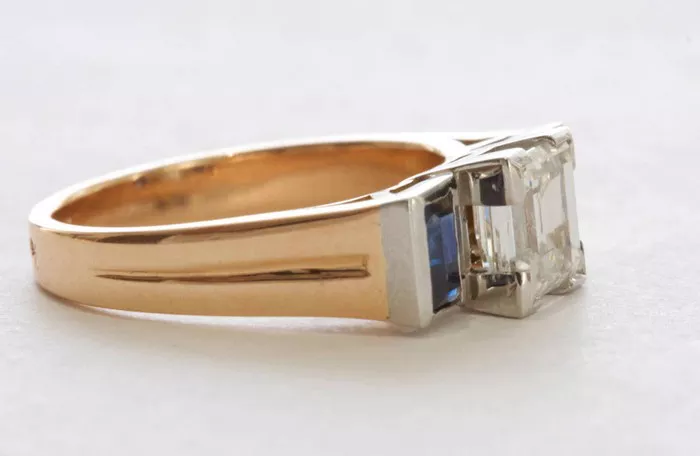The practice of wearing rings among wealthy men transcends mere fashion; it is a nuanced expression of status, identity, and personal style. From ancient civilizations to modern societies, rings have served as potent symbols of power, wealth, and affiliation. In this comprehensive article, we delve into the multifaceted reasons behind why affluent men choose to adorn their fingers with rings. By examining historical roots, cultural influences, psychological motivations, and contemporary trends, we unravel the complex layers of meaning that underpin this enduring practice.
Historical Perspectives: Rings as Symbols of Power and Prestige
To understand the significance of rings among wealthy men today, it is crucial to explore their historical evolution. Throughout history, rings have been imbued with symbolic meaning, often serving as markers of authority and social status. In ancient civilizations such as Egypt and Rome, rings adorned with precious gemstones and intricate designs were reserved for royalty, nobility, and high-ranking officials. These rings not only conveyed wealth but also asserted political power and legitimacy.
In medieval Europe, signet rings bearing family crests or seals became synonymous with noble lineage and heraldic authority. These rings were not merely decorative; they were practical instruments used to authenticate documents and correspondence, further solidifying their role as symbols of prestige and influence.
Cultural Influences: Diversity in Symbolism and Tradition
The significance of rings varies across cultures, influencing how and why wealthy men choose to wear them. In many Asian cultures, rings are believed to possess auspicious qualities, serving as protective talismans or symbols of prosperity. Rings adorned with auspicious gemstones like jade or coral are worn to attract good fortune and ward off negative energies.
In the Middle East, particularly among Arab and Persian communities, rings hold deep cultural and religious significance. Islamic tradition places importance on the wearing of rings, particularly the “ring of Muhammad,” which symbolizes faith and spiritual connection. Wealthy men from these regions often wear rings with inscriptions from the Quran or bearing religious motifs as a testament to their faith and piety.
Psychological Motivations: Self-Expression and Personal Identity
Beyond cultural and historical contexts, the decision to wear rings among wealthy men is influenced by psychological factors related to self-expression and personal identity. Rings offer a tangible means for individuals to assert their unique tastes, preferences, and personal narratives. A carefully chosen ring can serve as a statement piece, reflecting aspects of the wearer’s personality and lifestyle.
Psychologically, wearing rings can also enhance self-esteem and confidence. For affluent men, particularly those in high-profile positions or industries, rings can act as subtle signals of success and competence. The confidence derived from wearing a well-crafted ring may extend to professional interactions, influencing perceptions and establishing rapport with peers and clients alike.
See Also: Is Wearing a Diamond Lucky?
Social Signaling: Status, Affluence, and Networking
The wearing of rings among wealthy men serves as a form of social signaling, communicating status, affluence, and cultural capital. In affluent circles, the choice of jewelry—including rings—can be scrutinized as indicators of taste, discretion, and financial prowess. High-quality rings crafted from rare materials such as platinum, gold, or adorned with exquisite gemstones convey not only personal wealth but also an appreciation for craftsmanship and luxury.
Moreover, in social and professional contexts, rings play a strategic role in networking and relationship-building. A well-chosen ring can serve as a conversation starter or mutual interest point, facilitating connections and establishing common ground among affluent individuals. In this sense, rings become symbolic tools for navigating social hierarchies and forging alliances within exclusive circles.
Contemporary Trends: Innovation in Design and Personalization
In the realm of fashion and luxury, the trends surrounding ring-wearing among wealthy men are continually evolving. Contemporary designers and jewelry houses cater to affluent clientele by offering bespoke rings that blend traditional craftsmanship with modern aesthetics. Customization options allow wealthy men to personalize their rings, from selecting rare gemstones to incorporating unique design elements that reflect their individuality and discerning tastes.
Celebrities and influencers also play a significant role in shaping trends in men’s jewelry, including rings. Red-carpet appearances and high-profile events often showcase elaborate and statement-making rings worn by affluent men, influencing consumer preferences and sparking demand for particular styles or designs. As a result, the market for luxury rings continues to innovate, offering wealthy men a diverse array of options to express their style, status, and aspirations.
Investment Value and Collectibility: Rings as Assets
For some wealthy men, rings hold investment value beyond their aesthetic appeal. Rare gemstones, such as diamonds, emeralds, and sapphires, can appreciate in value over time, making high-quality rings potential assets in a diversified investment portfolio. Collectible rings crafted by renowned jewelry houses or featuring historical significance can also hold intrinsic value, appealing to affluent collectors seeking unique pieces with cultural or artistic merit.
Furthermore, the acquisition of rare or bespoke rings can be seen as a form of personal investment, aligning with broader strategies for wealth preservation and legacy planning. As tangible assets, rings offer wealthy individuals a means to diversify their holdings while simultaneously enjoying the aesthetic and emotional pleasures of fine jewelry.
Conclusion
The practice of wearing rings among wealthy men is a nuanced phenomenon shaped by historical traditions, cultural influences, psychological motivations, and contemporary trends. Beyond their ornamental value, rings serve as potent symbols of power, status, and personal identity. Whether chosen for their cultural significance, psychological benefits, social signaling purposes, or investment potential, rings continue to occupy a significant place in the lives of affluent individuals around the world.
As trends evolve and societal norms shift, the wearing of rings among wealthy men remains a dynamic and evolving practice, reflecting changing attitudes towards wealth, luxury, and personal expression. By exploring the multifaceted reasons behind this timeless tradition, we gain insight into the complex interplay of symbolism, status, and individuality that defines the world of luxury jewelry and its enduring allure for affluent men.

